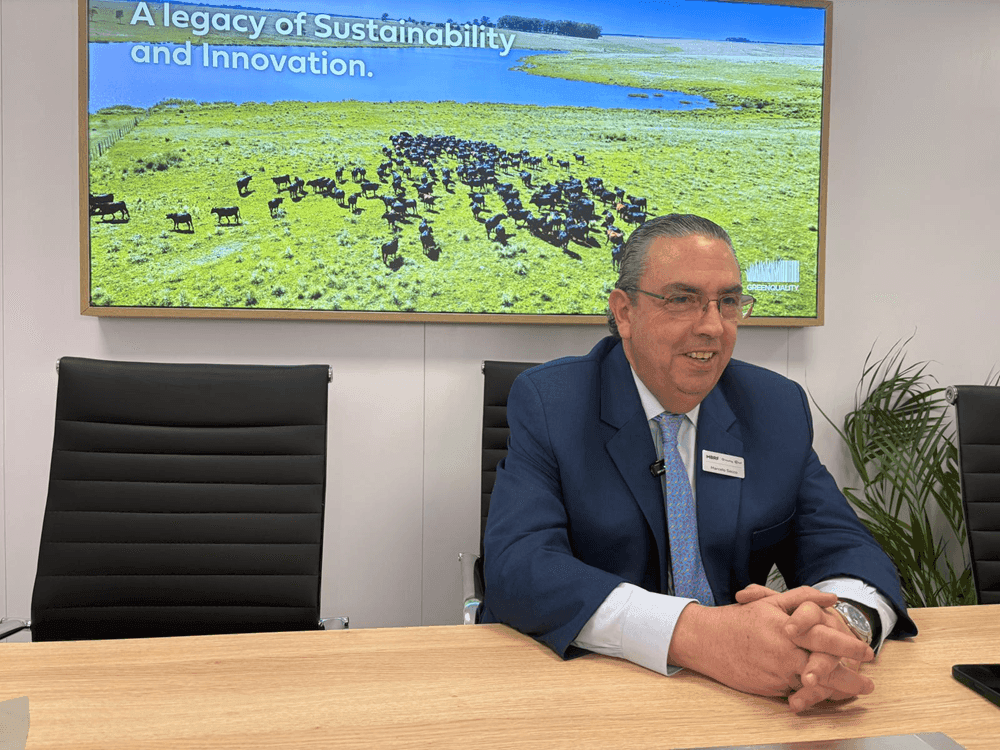Marcelo Secco: “The strength of the global market allows us to look ahead to a year of consolidation in 2026”
Speaking from the Anuga 2025 fair, Marcelo Secco, head of MBRF in Uruguay, highlighted the dynamism of the global meat market and Uruguay’s strategic role in global supply. “It’s been a good fair, showing clear signs of consolidation. There’s a stronger presence of major importers, growth in the grainfed beef business, and a multiprotein trend among distributors,” he summarized.
According to Secco, the global shortage of beef and the strength of the U.S. dollar are creating a favorable environment for South American exporters. “The good news for the region is that there’s no significant growth in protein production. Beef remains scarce, and that’s what’s keeping prices firm,” he noted.
The executive explained that the smaller presence of Asian buyers at Anuga was due to China’s Golden Week, not a slowdown in demand. “China is well supplied. Brazil shipped nearly 200,000 tons in September, and now the market just needs to settle,” he said. He also referred to the reopening of the Israeli market, where higher kosher beef prices are expected. “It’s a solid market that has validated both Argentine beef and Uruguayan grainfed beef. The challenge is improving prices amid higher livestock costs and strong competition for forequarter cuts in the U.S. and Europe.”
When asked about the outlook for the North American market, Secco was optimistic. “The U.S. is dynamic, with strong demand and firm prices. It’s a meat-eating country, and it shows. Everything indicates that next year will remain stable.”
Domestically, he emphasized that MBRF will operate its four Uruguayan plants at full capacity, following confirmation that the company will retain its assets in the country. “Our strategy hasn’t changed: we must continue adding value in an expensive process and with a costly product. As long as the market supports it, we’ll run our plants at full capacity, using both local and imported raw materials,” he explained.
Regarding the proposed legislation to limit industry participation in feedlot operations, Secco was categorical. “Frankly, I don’t understand it. Restricting integration would mean limiting aggregate demand in a high-risk business. The market logic is that packers work alongside producers—that’s what has strengthened the supply chain.”
For Secco, Uruguay enters 2026 on a solid footing. “The key is to seek the best business opportunities and maintain competitiveness. Markets are firm, demand is sustained, and the industry is ready to capitalize on this favorable cycle,” he concluded.
